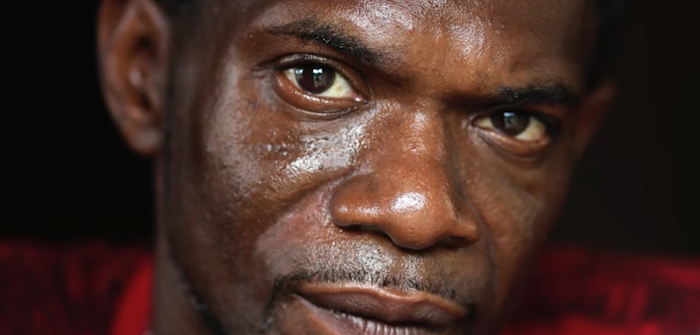
LAGOS, Nigeria — Statistics compiled by Amnesty International in 2021 show that there is a culture of stigmatization and victim-blaming towards rape survivors. The result is a large percentage of rape and sexual assaults go unreported in Nigeria.
Paul Akinyemi Thomson was far more than a statistic. It was a reality he lived every day for 21 years. Born in 1986, Thomson told Religion Unplugged that his mother was sexually molested by the Reverend Kolawole Olaiya Thomson of a Cherubim and Seraphim church starting from age 12.
Thomson said his mother had to go live with the late reverend from a young age because her parents could no longer raise her. It was at the reverend’s home that Thomson’s mother conceived him and his elder sister after being raped multiple times.
“This man of God already had like 10 wives, very respected in the community. … Peopled loved him because he does miracles and all that,” Thomson said. “My mother was complaining to people that this man of God molested her but nobody listened to her because in Nigeria they blame the victim first. The molestation by the pastor continued until she got pregnant at age 17 and had my big sister, they had me three years later.”
Thomson and his sister continued to be abused by his father and other fmaily members, including being subjected to curses, voodoo and constantly called “omo eru,” a slur in the Yoruba language meaning “slave.”
“I was sexually molested too and even this year they were still calling I and my sister slaves,” he added. “In 1998, my dad used Deuteronomy 28 to curse me. Deuteronomy 28 is the worse chapter in the Bible, and the only chapter in the Bible, filled with curses, generational curses and my dad was using it to curse and swear at me.”
A 2021 study by the United Nations Population Fund found that 28% of Nigerian women between the ages of 25-29 have experienced some form of physical violence since age 15. The prevalence of sexual violence against women in Nigeria is further boosted by victim blaming, which has flourished in Nigeria as a prevailing attitude. This has the concomitant effect of discouraging victims from seeking justice, thus allowing abusers to continue with impunity.
“I’m just trying to rewrite what’s wrong … because everybody blamed my mom then and I can imagine, why are you blaming a 12-year-old girl? She is just 12! The man doing this is 50 years old,” Thomson said.
In 2014, Thomson started a nonprofit organization named after his mother – Comfort Empowerment and Advocacy Foundation (CEAF) — to raise awareness about sexual assault, domestic violence and child marriages and to also provide free shelter and psychotherapy support to survivors.
Based in Lagos, CEAF offers victims access to free psychological counselling and therapy. CEAF also operate an online portal through which individuals can report abuse for CEAF staff to follow up with civil authorities.
CEAF has assisted over nine people since its founding with free legal services, psychotherapy support and financial grants. Currently, CEAF’s safe shelter, meant to house survivors of sexual violence, domestic violence and child marriage, is 90 percent complete, Thomson said.
One of such beneficiaries is Nkiruka Onyebuchi, 29, who told Religion Unplugged she was trapped in an abusive relationship for six years until CEAF intervened and gave her the help she desperately needed.
“I was in my early 20s when we met and started living together because we were to get married but the abuse was a lot and I could not really tell anybody including my parents because I never forgot what my mother always said to me ‘if you want to stay in a marriage, you need to have patience’ so I thought it meant I had to be patient with everything,’” Onyebuchi said.
She eventually got pregnant, which led to an increase in the physical and mental abuse she had endured.
“I actually thought the beating was going to stop when I was pregnant, but it got worse until I had the baby but the baby died,” Onyebuchi said. “He usually says the reason he beats me is because I’m stubborn and I believed him.”
In January 2023, Onyebuchi’s friend introduced her to CEAF. As a result, Onyebuchi’s boyfriend was arrested by the police and made to sign an undertaking not to physically abuse her again.
Onyebuchi also received financial help to move out of her house and lease her own place, receive counseling and help with finding a job.
“If I didn’t have the therapy sessions, I would not be having this interview with you because I had insecurity issues,” she said. “I was very defensive and aggressive then. The counseling sessions really helped at least 60 percent. I still talk to my therapist from time to time.”
A major challenge for CEAF has been funding and finding partnership. Thomson has been funding CEAF out of his pocket and has not had much success partnering with others, he said, including the Lagos’ Domestic and Sexual Violence Agency.
“Since I started CEAF, nobody has actually contributed any money, so all of the money I’ve made has been invested into CEAF,” he said. “I’m doing this because of my mom. This is personal to me and this is what I want to do for the rest of my life.”
Complete Article ↪HERE↩!
